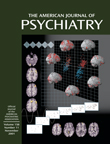Alzheimer’s disease has been dubbed “the disease of the 20th century,” an appropriate if dubious honor for an illness that at the close of the century was diagnosed in 4 million living North Americans, including a former president of the United States. Interest in the disease described by Alois Alzheimer in 1907 largely fizzled out in the first 50 years of its life. Alzheimer’s disease was considered a rare cause of presenile cognitive decline until the penny dropped in the 1960s and 1970s, when clinicians who were seeing older people with dementia noticed that most of this group had neuropathological features of the condition. This “rediscovery” of Alzheimer’s disease and the subsequent exponential growth in both the number of people afflicted by it and academic and commercially sponsored research makes for a fascinating story. How ironic that a disease whose main feature is loss of memory should itself be forgotten for so many years. Just as our amnestic patients may painfully rediscover the death of their parents and changes in their neighborhood since their childhood, the story of Alois Alzheimer has also been the subject of some remarkable recent rediscoveries.
Peter Whitehouse and the other editors of this book have put together what I am sure will prove the definitive account of exactly what happened to Alzheimer’s disease in the last century. The book arose from the collected proceedings of a symposium held in 1997 to celebrate the life and legacy of Alois Alzheimer and the neuroscientists of his generation. Fittingly, the symposium was held in Alzheimer’s birthplace and childhood home in Marktbreit, Germany; the house itself was another rediscovery, made in 1989. The house was purchased by Eli Lilly and Company and converted into a museum and conference center.
Within 2 days of the opening of the restored and converted Alzheimer Haus, Konrad Maurer and colleagues, searching the dusty basement of the Johann Wolfgang Goethe University Hospital, rediscovered the case notes of Auguste D, Alzheimer’s famous first case. The details of that case, with photographs of Auguste D, her case file, and her handwriting, plus, for the morbidly curious, a picture of Alzheimer’s grave can be found in the book’s first chapter. The contributions that follow cover everything else, from the history of the Alzheimer’s Association to the latest developments in molecular biology.
I read this book with great pleasure, and it will share a special place on my bookshelves with the other books that I don’t really want to lend to my colleagues in case they don’t return them. The contributors were well chosen, and the editors took their responsibilities very seriously to ensure that there are no false notes among the chapters. Anybody who works with people with dementia will find that this book enriches their perspective on the disorder. We still have pathetically little to offer patients with Alzheimer’s disease in the way of disease-modifying treatments. Perhaps in 2100 the great-grandchildren of the contributors to this book will be writing more optimistically about this area.

